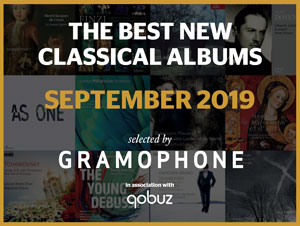Q&A with Graeme Steele Johnson, clarinetist and discoverer of Loeffler's lost Octet
Theo Elwell
Friday, June 7, 2024
‘This recording prompts a revisiting the question of why we know what we know today.’

Photo Credit: Evan Chapman
Q. For those who don’t know about the composer - tell us a little bit about Loeffler?
He’s interesting for so many reasons. He was born near Berlin to German parents and essentially obscured his identity, pretending he was French, to the point where he even changed the spelling of his last name to appear more French, from Martin Karl Löffler to Charles Martin Loeffler. This has created a kind of tangled web of national identities which have hoodwinked the majority of people, to the point where I have seen programme notes describing him as a French composer. His family moved around a lot, eventually settling in France where he found his spiritual homeland in the nation’s capital, falling in love with French artists, writers and musicians. He moved to Boston, USA, peppering his English with French expressions with the intention to convince the locals he was from Alsace.
Q. Do you find it liberating or daunting recording something that has never been recorded before, without any references to consult? Has it been a more collaborative process than usual with your fellow performers?
Totally. I think because this project is my baby, there was a natural instinct to default to my opinion in rehearsals, but from the get-go I decided I really didn’t want to be the boss of this, and I'm curious to hear from others, especially my collaborators. In doing so, I learned so much more about the piece.
When it comes to interpretation, we had to approach this piece in a different way given we had no existing recordings to learn from. For example, with idiomatic instrumental technique, there's a point at the very opening of the second movement that is marked ‘Adagio molto’; the first clarinet and two violins have five beats under one tie, so for the clarinet, that means we would connect those notes with one breath but the violins have three notes in one bow and 2 in the other. To me, that suggested that the tempo he wanted was slow enough that it was a problem to fit five beats under one bow, thus informing the speed at which we determined to be ‘Adagio molto’. With Loeffler’s other scores, you can find examples of specific key revisions he made in response to specific complaints from the press, so that kind of throws into question the intrinsic musical motivation behind his revisions.


Graeme Steele Johnson | Photo Credit: Dylan Hancock
Q. Did you call upon any other works when interpreting the piece? Give the composer himself was so culturally ambivalent, how did that influence your choices?
Well, the finale has this raucous kind of Hungarian folk idiom that all of us in the ensemble immediately compared to the Gypsy Rondo of Brahms from the G Minor Piano Quartet, so that was definitely an immediate comparison. A lot of people interestingly drew comparisons to Schoenberg, I think it's just some of the heavily chromatic moments in the second moment, evocative of the late German Romantic idiom. Loeffler’s best known piece today is probably the two rhapsodies for oboe, viola and piano, which sounds a lot like Debussy. That's definitely in an impressionist style, and so a lot of critics have expressed their surprise when this new octet doesn’t sound like that. I think harmony in general for Loeffler is kind of kaleidoscopic, it doesn't really obey a diatonic verticalised understanding of key, it's more just enriched by different kinds of colours and tones. You could say it’s built from a French impulse and packaged in a kind of traditionally Germanic, Brahms or Mahler-like way.
Q. What has the reception been like for this ‘new old’ work?
It's been really interesting, people are very excited. It's fascinating hearing just the huge spectrum of other composers that people reach for to draw comparisons. There’s Mahler, Tchaikovsky, Wagner, Strauss, early Schoenberg, Debussy, Brahms - basically everyone, every colour of the rainbow in the 19th century! I think this says a few things; number one, it says something about Loeffler’s cosmopolitan identity and the confluence of influences in his music, as well as this sort of like grasping for national identity going on within American music at that time.


The first page of the original manuscript, discovered in the Library of Congress | Photo Credit: Graeme Steele Johnson
Q. Are there any other composers’ works you are planning to lend your detective skills to discovering?
I mean, I came across this totally serendipitously. It was a combination of serendipity and curiosity that led me this path rather than actively seeking it out. I found the manuscript in the Library of Congress and they were telling me that they have something like 26 million documents in their collection, so Loeffler’s piece is just one of 26 million.
As a clarinettist, I am always reminded that the original manuscript to the Mozart Clarinet Concerto has never been found, and was allegedly pawned for cash by the premiering clarinettist. It has really made me think about the history of classical music, it's easy to buy into this theory of musical natural selection and that music that has survived the test of time must be good, and conversely, music that is unknown today must be unknown for good reason. But it turns out, it's just not that simple. And for a number of reasons. We performed Schubert's Octet at the Library of Congress, which is now a cornerstone of the repertoire, and it's almost unthinkable to think that it had once slipped into obscurity, but it wasn't published until almost 50 years after the composer’s death. This recording prompts a revisiting the question of why we know what we know today.







